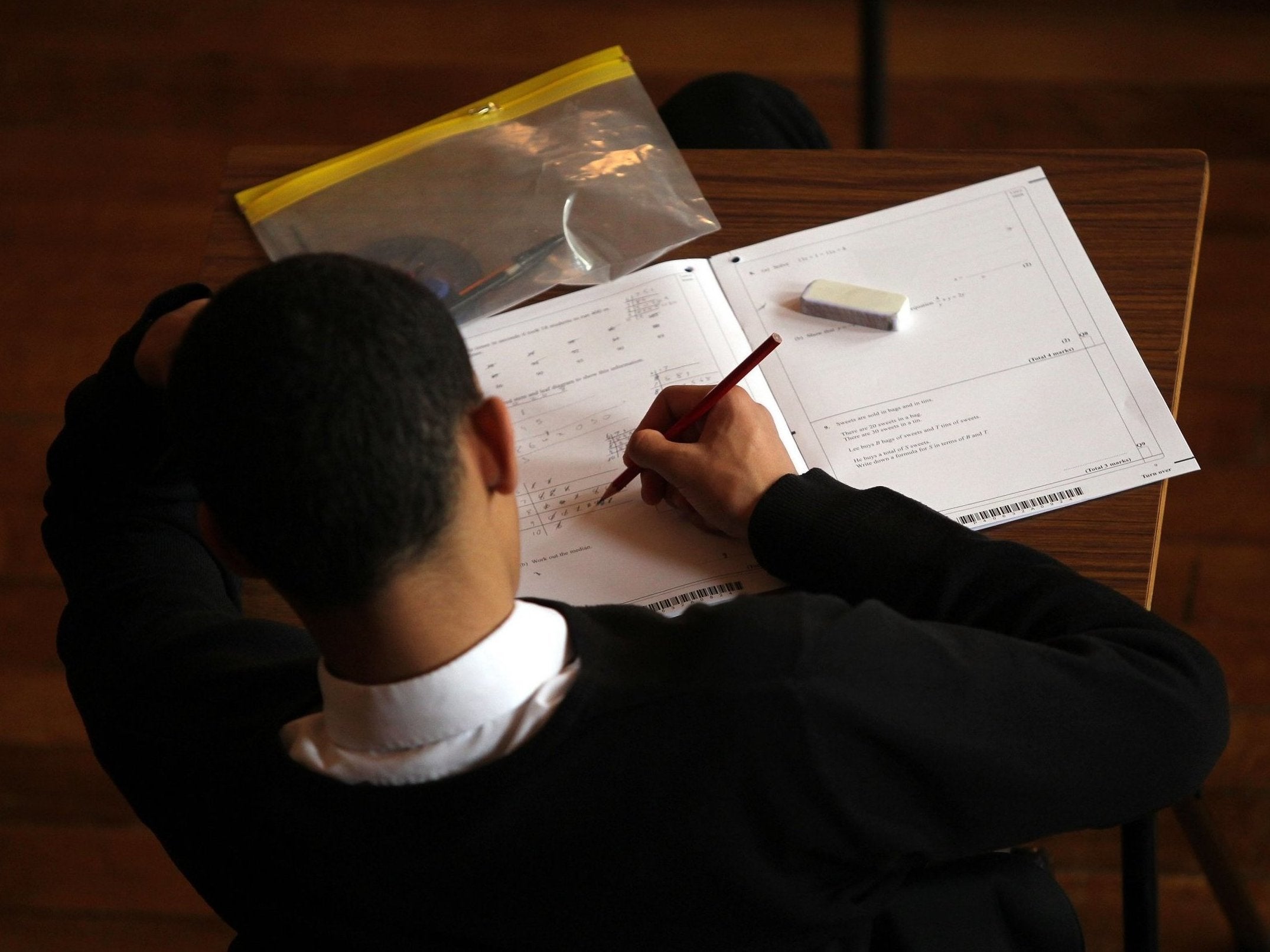Private schools 'cheating GCSE system to rig their results'
'State school pupils have been treated like guinea pigs whilst many independent schools have gamed the system,' says Labour MP

Private schools have been accused of tricking the system to boost their results as figures exposed the number of students choosing to take “easier” GCSE exams.
Three-quarters of International GCSEs - widely considered to be less rigorous than new GCSEs - were taken by pupils from independent schools in 2018.
The figures, released by the government in answer to a parliamentary question from Labour's Lucy Powell, also revealed that 90% of IGCSE entries in the core subjects that form the English Baccalaureate were from private schools.
In 2018, 76% of IGCSE entries were from independent schools, with 23% from state-funded schools, according to the data.
Analysis by Ms Powell's office suggested 0.2% of GCSE entries in state schools were for IGCSEs, with independent school pupils 55 times more likely to take an IGCSE.
The government has described reformed GCSEs as more demanding, as all exams are taken in one period at the end of the course.
Ms Powell, a former shadow education secretary, said: “If, as ministers say, these new GCSEs are the gold standard, why are private schools opting out? Private schools are cheating the system to inflate their results and give their pupils, who are already advantaged, a further boost.
“State schools have dealt with changes to GCSEs really well, but there is no doubt that we have seen huge upheaval with increased stress for pupils and workload for teachers.
“State school pupils have been treated like guinea pigs whilst many independent schools have gamed the system, insulating their institutions and their pupils against these changes, keeping the easier International GCSEs completely, or waiting for the new GCSEs to bed in before opting to enter their pupils on to these courses.”
She said there is a growing concern the new GCSEs are having an impact on children's mental health and wellbeing and are failing to give young people the skills they need for the 21st century.
“That private schools have reached the same conclusion should send alarm bells ringing for everyone,” she added.
There were 26,024 IGCSE entries in independent schools in 2018, compared with 7,824 in state-funded schools, and 337 in other institutions, figures released by schools minister Nick Gibb showed.
Tory former minister Robert Halfon, chairman of the Commons Education Select Committee, said: “We need to really understand why these are being used.
“The Independent Schools Association need to explain, and the individual schools themselves, why they are taking what appears to be at first sight an easier option.”
A Department for Education spokeswoman said: “International GCSEs have not been through the same regulatory approval and quality control as the new gold-standard GCSEs, which is why we no longer recognise international GCSEs in school performance tables.
“The new GCSE qualifications have been reformed to provide more rigorous content, so young people are taught the knowledge and skills they need for future study and employment.”
Additional reporting by Press Association
Join our commenting forum
Join thought-provoking conversations, follow other Independent readers and see their replies
Comments
Bookmark popover
Removed from bookmarks